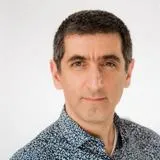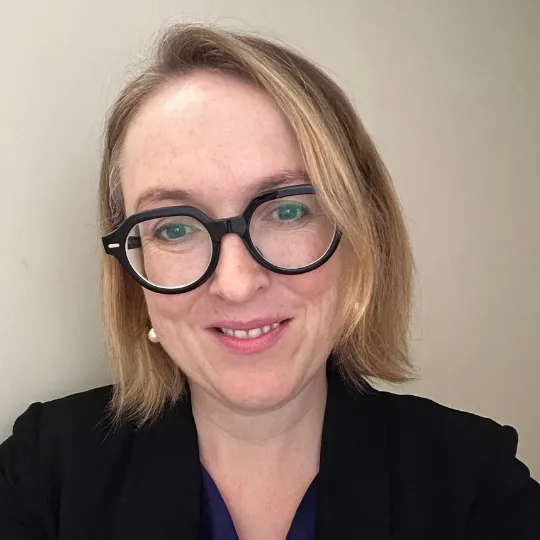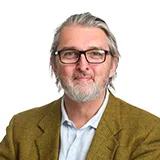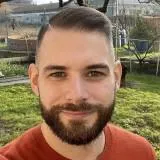What has changed is not so much my opinion on AI but my opinion on how King's can contribute to the public discourse on AI and to education as well as research challenges tapping on the existing expertise in a coordinated and creative ways reaching out to a rich network of partners.
Anonymous feedback
15 June 2023
'Inspirational, informative and thought-provoking': King's Festival of Artificial Intelligence
King’s opened its doors to the public to explore the latest AI developments at this five-day festival.
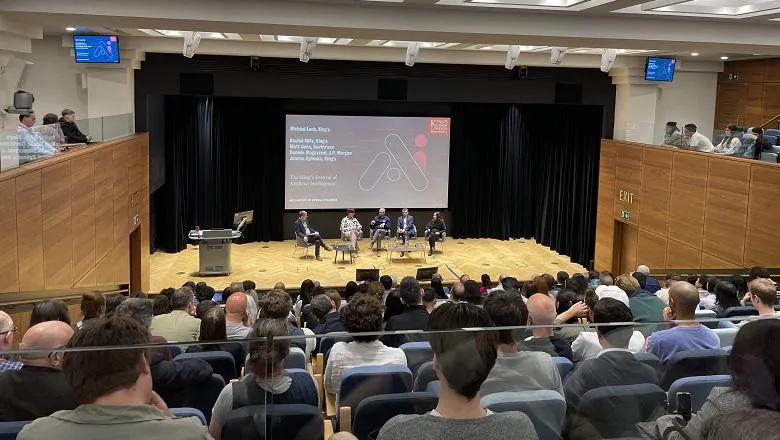
Between Wednesday 24 May and Sunday 28 May, the King’s Institute for Artificial Intelligence held a Festival of Artificial Intelligence, welcoming over 1000 people to a series of events dedicated to exploring the latest developments in artificial intelligence and some of the challenges and opportunities they pose. The festival programme covered a broad range of topics, including law, surgery, human-AI relationships, art, and the impact of AI on video games and music. There were also opportunities to participate in King’s AI research through a series of demonstrations, including family-friendly events suitable for younger festival-goers such as a ‘Build a Robot’ workshop and ‘Fantastic (Artificial) Beasts and Where to Find Them’ involving games, quizzes, puzzles to unmask AI’s secrets.
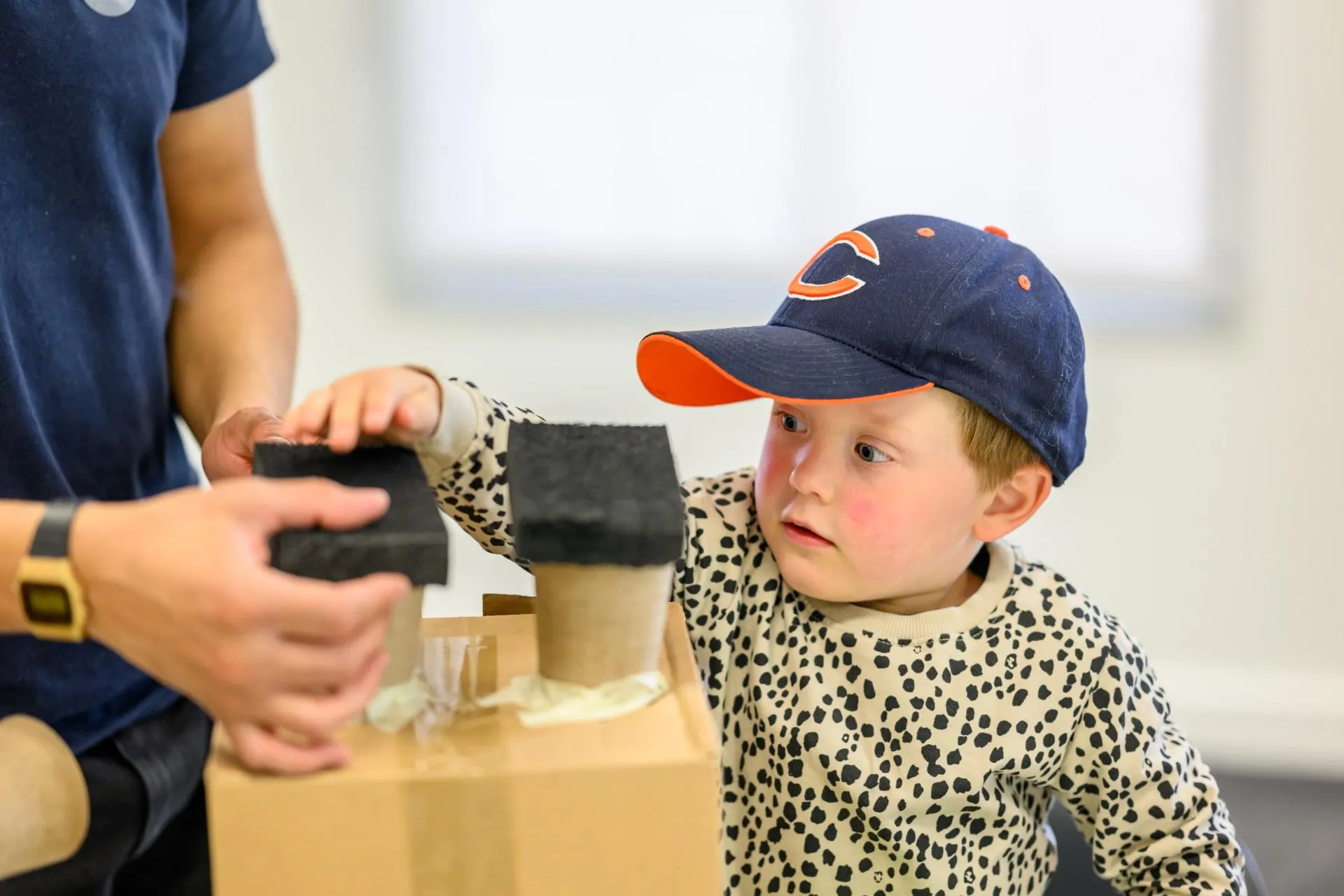
Professor Michael Luck, Director of the King’s Institute for Artificial Intelligence, chaired the opening panel on the first day of the festival. The panel included Professor Rachel Mills (Senior Vice President (Academic), King's College London), Matt Dunn (CTO, Europe, Darktrace), Dr Daniele Magazzeni (AI Research Director and Head of Explainable AI Center of Excellence, J.P. Morgan) and Professor Joanna Zylinska (Professor of Media Philosophy and Critical Digital Practice, King's College London), and addressed key AI developments, issues and debates, including AI in higher education, potential dangers of AI in the context of security, how AI explainability can help build public confidence, the impact of AI technologies on art, and more.
Commenting on the panel discussion, one attendee said:

King’s academics delivered public talks throughout the festival. Professor Luca Viganò from the Department of Informatics explored how fairy tales illustrate key concepts of AI and cybersecurity, Professor Dan Hunter from the Dickson Poon School of Law examined the law and ethics of generative AI, and Professor Prokar Dasgupta from the School of Immunology & Microbial Sciences shared the digital future of surgery with audiences, including a live demonstration of the Versius Virtual Reality system used to train surgeons in robotic surgery. In the context of AI and art, Digital Humanities featured strongly, with Professor Joanna Zylinska exploring human and machine creativity, and Dr Kate Devlin considering the potentials and pitfalls of fostering friendships and intimacy with computer software and hardware (pictured below).
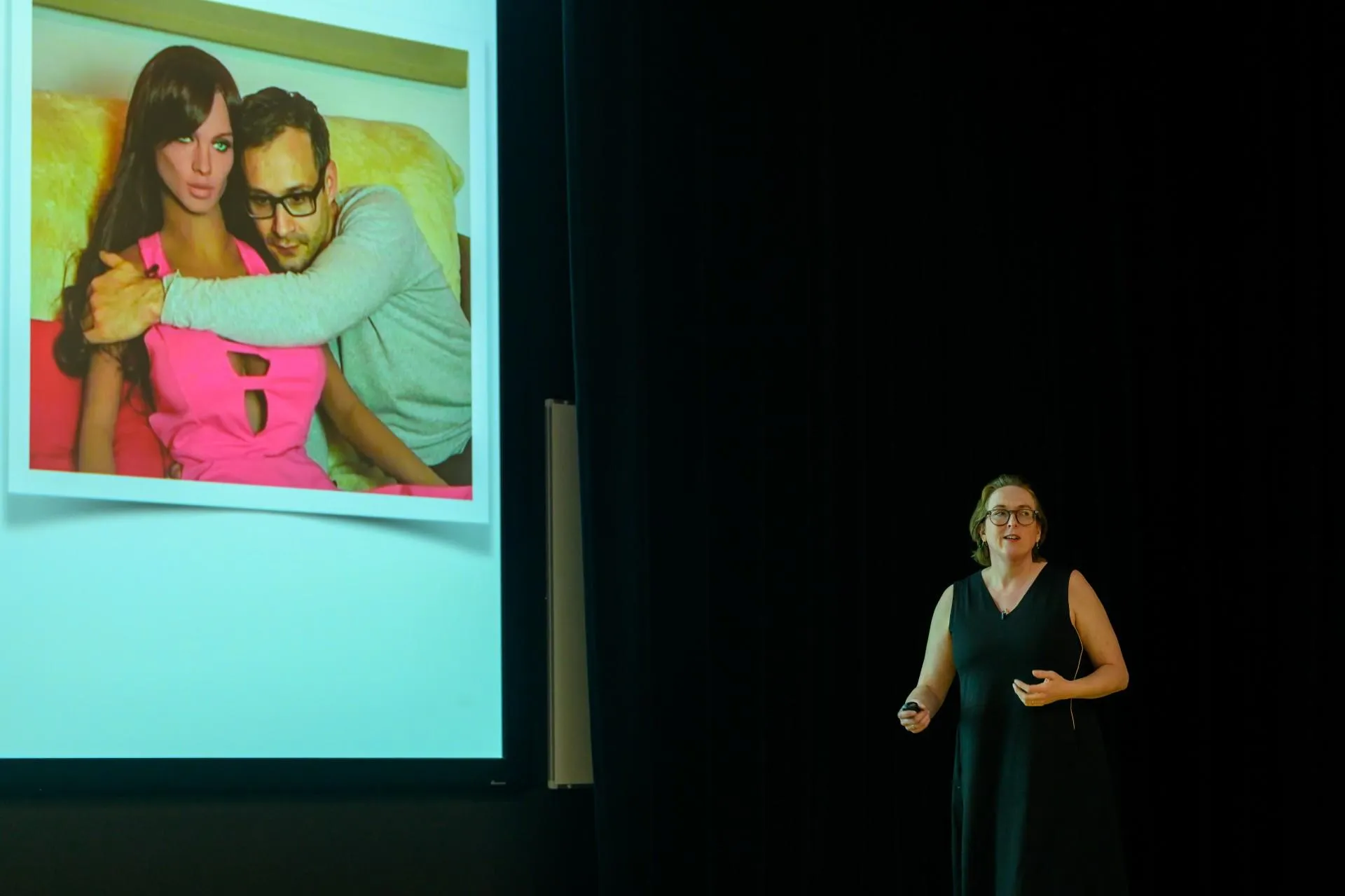
AI and creativity was explored throughout the festival. Audiences were prompted to consider questions such as ‘Can computers be creative?’, ‘Do AI image generators such as DALL·E 2 mean the end of art?’, and ‘How might AI art impact society and humanity's self-conception?’. The future of music was also the focus of several festival activities, with a performance of AI-generated songs by Algorithmix (a band that included PhD students from the UKRI Centre for Doctoral Training in Safe and Trusted AI, Usman Islam, Michelle Nwachukwu, Madeleine Waller and Stefan Roesch), and a public demonstration challenging people to differentiate between human-made and AI-generated music.
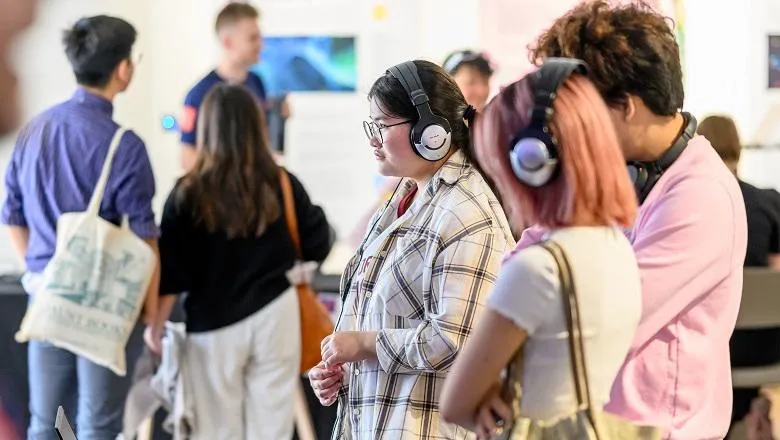
The festival included public screenings of the short films, ‘MERCY’ and ‘The First’. ‘MERCY’ explores AI and algorithms in the judicial system, while ‘The First’ uses the concept of the Turing Test to ask “what happens when humans turn the tables on machines?”. The public were also invited to view a screening of GROUPTHINK, a live networked performance by sitarist Shama Rahman, guitarist Mick Grierson and video generated by an AI trained on the National Gallery's collection, before participating in a Q&A with GROUPTHINK collaborators, Ali Hossaini, Shama Rahman (pictured below), Olive Gingrich, Luca Viganò and Diego Sempreboni.
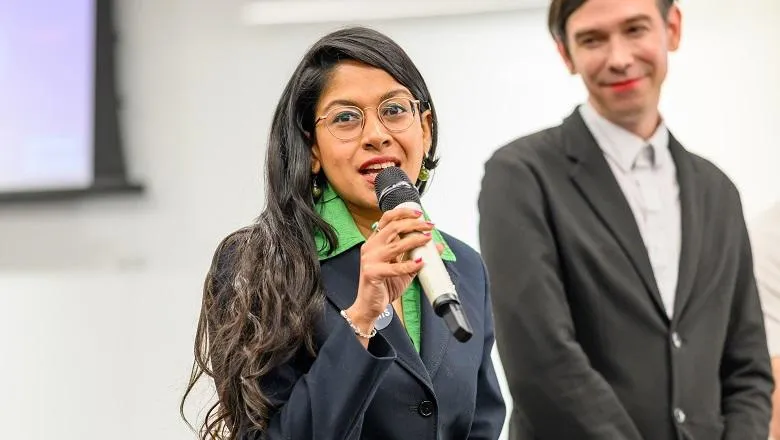
The final day of the festival was dedicated to AI and the future of games. Coordinated by Dr Michael Cook from the Department of Informatics, scientists, sociologists, game designers, YouTube essayists, AI engineers, and more, came together to examine how AI might change the future of how we play, make and watch games. Attendees of the workshop entitled ‘Next Level – AI and the Future of Games’ complimented “the wide and diverse range of speakers coming at the topic of AI and games from different angles.”
Event recordings
Some festival events were recorded and are now available to watch on the King’s Institute for Artificial Intelligence YouTube channel. Other videos will be added shortly.
- Bringing the Human to the Artificial: An AI Panel - Professor Michael Luck, Professor Rachel Mills, Matt Dunn, Dr Daniel Magazzeni and Professor Joanna Zylinska, 24 May 2023 (coming soon)
- Fairy Tales of AI and Cybersecurity - Professor Luca Viganò, 24 May 2023
- Fair Modelling: a qualitative framework for an ethical development & implementation of AI models for precision medicine – Dr Raquel Iniesta, 24 May 2023
- The Law and Ethics of Generative AI - Professor Dan Hunter, 25 May 2023
- The Digital Future of Surgery - Professor Prokar Dasgupta, 25 May 2023
- AI Art: On Human and Machine Creativity - Professor Joanna Zylinska, 26 May 2023
- AI & Art Salon - Professor Michael Luck, Professor Joanna Zylinska, Dr Daniel Chávez Heras, Cari Hyde-Vaamonde and Dr Ali Hossaini, 26 May 2023
- How deep (learning) is your love? - Dr Kate Devlin, 27 May 2023
- Next Level - AI and the Future of Games - 28 May 2023
AI at King's
King's College London has a vibrant and expansive community in artificial intelligence, with work taking place in every faculty across King's. Activity spans core AI (its technical underpinnings), applications and societal implications. The King's Institute for Artificial Intelligence is dedicated to connecting researchers, educators, students, policymakers, and the wider public to foster collaboration, advance research, and develop the understanding and application of AI in society.
In addition to the festival, King's College London is embarking on a year of programming exploring AI at King’s. The King’s Institute for Artificial Intelligence is holding Bringing the Human to the Artificial, an 8-week exhibition in the Bush House Arcade at the King’s Strand Campus in collaboration with King’s Culture. This will be followed by 'AI: Who's Looking After Me?' at Science Gallery London on the King’s Guy’s Campus (June 2023 – Jan 2024).

